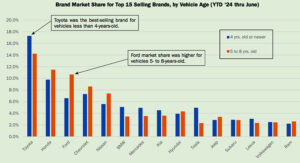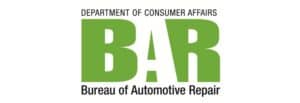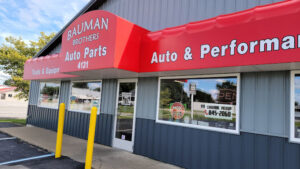Jack Molodanof, ASCCA legislative advocate, shares state laws that have potential to create issues and concerns for California shop owners if they are unaware of them
1) Employee Abandoned Tools. Auto repair shops have certain legal responsibilities and obligations regarding the abandoned tools left by an employee. Employers need to protect themselves from future liability if the employee demands return of his/her tools. Generally, under California Civil code sections 2080 -2080.10, if owner has not claimed the property, the person saving the property shall within a reasonable time turn property over to the police department of the city or county, or the sheriff’s department.
2) Recording Telephone Calls. Auto repair shops cannot record telephone conversations with customers unless advance consent is obtained. It is illegal for any person by means of any instrument to record a telephone conversation without the consent of all parties to the communication. This includes recording for employee training purposes. See Penal Code section 630, 631, 632.
3) Paying Referral Fees to Tow Companies. Auto repair shops cannot pay referral fees to tow companies. Automotive repair shops shall not directly or indirectly pay or agree to pay any money or anything of value as a commission, referral fee, inducement, or in any manner a consideration, to a towing service for the delivery or the arranging of a delivery of a vehicle not owned by the repair or towing service, for the purpose of storage or repair. See Vehicle Code Section 12110 and BAR regulations 16 CCR section 3368.
4) Car Washing and Detailing Requires Separate License. A shop must have a separate license for performing car washing and detailing services if such services are not ancillary to its primary business. If a repair shop is conducting a separate/side business of detailing vehicles the shop may have to obtain a separate licenses as a car washing/detailing shop. The law provides an exemption for a shop registered with BAR who is primarily engaged in the business of repairing and diagnosing motor vehicles. See Labor Code sections 2050, 2051.
5) Requiring Employees to Supply Tools. If a shop requires employees to supply their own tools, they must be paid at least double the minimum wage. The law provides that when tools or equipment are required by the employer or are necessary to the performance of a job, such tools and equipment shall be provided and maintained by the employer, except that an employee whose wages are at least two times the minimum wages may be required to provide and maintain hand tools and equipment customarily required by the trade or craft. Employee legal experts have opined that since the double the minimum wage law is a state law a shop would apply the state minimum wage. See Wage Order 9 (Transportation)
6) Worker Comp Termination/Discrimination. California Law prohibits an employer from terminating or discriminating against an injured worker for filing or threaten to file a Workers’ Comp claim. A shop cannot fire an employee for being “out too long” on a workers’ comp claim. See Labor Code section 132a.
7) Hazardous Wage Fees. Auto repair shops can only charge for costs associated with handling, management and disposal of toxic or hazardous waste substance, which directly relate to the servicing or repair of customers vehicle. This may not be a profit center. As a best practice, the shop should analyze expenses and revenues in this area at least annually and put together good faith estimates based on this analysis of the average actual costs incurred for each type of service performed. If any hazardous waste fee is charged it must be included in the original estimate (separately itemized) and invoice. The shop’s EPA number must be also be printed on estimate and invoice. See 16 CCR section 3357.
8) Warranty/Guarantee. A repair shop is not required by law to guarantee its work, but many shops do. If a guarantee or warranty is provided, it shall be in writing and a legible copy shall be delivered to the customer with the invoice itemizing the parts, components, and labor represented to be covered by such guarantee. The guarantee shall be deemed false and misleading unless it conspicuously and clearly discloses in writing the following: name and address of the business making the guarantee; the nature and extent of the guarantee; the term, time or mileage the guarantee is good for; what the customer must do to have the guarantee honored; what the guarantor will do; whether the guarantor or the customer has options as to what may satisfy the guarantee; whether the guarantee is prorated. See 16 CCR section 3376.
9) Vehicle Liens. Generally, auto repair shops have lien rights for services performed on a vehicle; however, the lien laws are complex and contain limitations, especially if a bank/finance company/lessor has a lien on the vehicle. Unless repairs have been authorized by the bank/finance company/lessor, the law provides that the bank/finance company/lessor is generally only required to pay up to $1,500 for repairs and $1,250 storage, if lien sale was filed, exceptions apply. Court action within a certain time limits maybe necessary to protect lien rights. Civil Code section 3068, et seq.
10) Tow Trucks – Accepting Possession of Vehicle from Tow Driver. CA law requires that a shop taking possession of a vehicle from a tow truck to document the name, address and telephone number of the towing of the towing company, the name and driver’s license number of the tow truck operator, the make, model and license plate or vehicle ID number and the date and time that possession was taken of the vehicle. Instead of operator’ driver’s license number the shop can accept the driver’s identification number number issued by a motor club or other government authorized unique identifier. This information must be maintained for 3 years and available for inspection within 48 hours by the CHP. See Vehicle Code section 22513.1












Comments are closed.